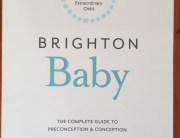 I wanted to share with you some recent research that has absolutely changed the way I think about iodine. Currently I test nearly every female client but my standards have just become even higher. Australia and New Zealand are currently going through a widespread iodine deficiency. Iodine cannot be made by your body and must be sourced through your diet.
I wanted to share with you some recent research that has absolutely changed the way I think about iodine. Currently I test nearly every female client but my standards have just become even higher. Australia and New Zealand are currently going through a widespread iodine deficiency. Iodine cannot be made by your body and must be sourced through your diet.
Iodine is vital for the thyroid hormones that regulate your metabolism, body temperature, reproduction, growth, red blood cell production as well as nerve and muscle function. Low thyroid hormones can cause you to become sluggish and gain weight, affecting your general health, fertility and ability to carry a pregnancy.
It is important to ensure adequate iodine intake during preconception, pregnancy and breast-feeding. During pregnancy, your baby is entirely dependent upon maternal iodine. Iodine deficiency during pregnancy is the most common world wide cause of preventable intellectual impairment and can be associated with losses of up to 10 -15 IQ points.
We have known for a long time now that severe iodine deficiency during pregnancy causes neurocognitive issues but the impact of mild iodine deficiency has not been properly studied – until now.
Published on April 30th this year in the Journal of Clinical Endocrinology & Metabolism, a study conducted in Hobart, Tasmania delves into the outcomes of mild iodine deficiency.
The researchers wanted to find out if children born to women with an iodine level of less than 150μg/L have poorer educational outcomes in primary schools than peers of mothers with levels higher than 150. Basically imagine little Johnny (mum has an iodine level of 160) sitting next to little Sammy (mum has an iodine level of 100).
This was a 9 year long study and the results are really frightening.
Children born to mums with an iodine level less than 150μg/L (or picture Sammy) had:
- Reductions in spelling by 10%
- Reductions in grammar by 7.6%
- Reductions in English literacy performance by 5.7%
- Poor Sammy will struggle when doing a spelling bee with Johnny!
These results were independent of factors such as mums age at the birth of her child, if the children were born on time or not, birth weight, sex of child or at what stage of the pregnancy the iodine test was done.
In 2006, a national study of Australian schoolchildren aged 8-10 years found that there was inadequate iodine intake in the Australian population. The interesting fact is that since October 2009, Government regulations have required that non-iodized salt be replaced with iodized salt in all bread (except organic) in an effort to address iodine deficiencies. Based on this more recent research, it seems that more needs to be done.
What is the next step you need to take?
If you are considering having a baby or are pregnant, ensure your iodine levels are checked and are over 150 μg/L. If not, some supervised supplementation may be wise.
Sources of iodine include seaweed (think sushi, snack on nori sheets, add dulse flakes to soups), canned salmon, snapper, eggs and non-organic bread.
Further research: Original 2006 study; Latest clinical study, 2013.
By Emma Sutherland












































































































